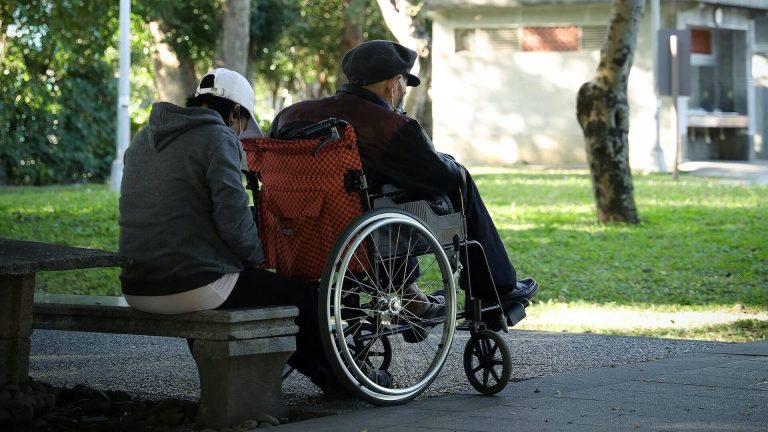Articles
Disability Advice from an attorney with decades of experience with disability benefits.

Is SSDI Hard to Get?
For individuals who are unfamiliar with Social Security Disability Insurance (SSDI), there is a lot of confusion surrounding it. It is difficult to set expectations during the application process in

The Pros and Cons of SSDI Explained
Becoming disabled can be devastating for most people. It can be difficult to figure out the complexities of Social Security Disability Insurance (SSDI) while going through such a hard time.

Can Someone On SSDI Be Claimed As A Dependent
Many people with disabilities have dependents who are also supported through their Social Security Disability Insurance payments (SSDI). However, if you have a child or disabled parent who is currently

When Should You Worry About A Disability Review?
Being notified of an upcoming disability review might make you worry and fill you with questions. That’s not necessarily bad since being prepared for your disability review will increase your

3 Ways That SSDI Affects Your Retirement
Many disabled people who are nearing retirement worry about what will happen to their Social Security Disability Insurance (SSDI) or retirement benefits once they reach Full Retirement Age. If you’re

5 Things You Should Never Say in a Disability Interview
An upcoming disability interview can be daunting for most individuals. It is difficult to gauge exactly what to say, how to say it, and what to avoid mentioning. In this

CDR Triggers and How to Pass a Continuing Disability Review
The Social Security Administration (SSA) conducts Continuing Disability Reviews (CDRs) to ensure beneficiaries are still entitled to Social Security Disability benefits. We know that CDRs happen at intervals predetermined by

Will A Disability Judge Give You Trick Questions?
Have you recently applied for disability benefits? You must attend a hearing soon where the judge will question you about the various aspects of your life. How well you prepare

4 Reasons Why SSDI Benefits Could Be Taken Away
An upcoming Continuing Disability Review can be a time of anxiety for many people receiving disability benefits. If you don’t pass the review, it’s possible that your Social Security Disability

Here’s What to Do If You Were Denied Disability and Can’t Work
Disability benefits can be a source of relief for many people who cannot stay employed because of their medical conditions. Unfortunately, approximately 65-70% of the initial applications are rejected. So,

6 Potential Ways to Increase Your SSDI Benefits
Most people find it difficult to successfully apply for Social Security Disability Income (“SSDI”) due to the complicated nature of the process. But if you believe you are entitled to

Sedentary Work Restrictions Defined
Work mostly performed while seated is defined as “Sedentary Work” by the Social Security Administration (“SSA”). This category of work entails lifting at most 10 pounds at any given time.

This Is Why It’s So Difficult To Get SSDI
Social Security Disability Insurance (SSDI) is a federally-funded program for people who are disabled and unable to retain employment. You may have heard about how difficult it is to be

Sedentary Work vs Light Duty: The Differences Explained
Social Security Disability Insurance (SSDI) is a federally funded program managed by the Social Security Disability Administration (SSA) for people whose disability prevents them from working. The SSA uses different

Can Disability Insurance Ask for Their Money Back?
You and your loved ones may go through a difficult time when you are diagnosed with a disability. What if you have a long-term disability (“LTD”) claim through a private

Can You Refuse Medicare When on SSDI?
When it comes to insurance options, you might be unsure if Medicare is your best bet. Turning down Medicare in favor of a less expensive health insurance choice can be

Complete List of Questions Asked at a Disability Hearing
Being prepared to attend a Social Security Disability Insurance (SSDI) hearing increases the chances of being awarded disability benefits. It is also important to know the kind of questions to

What Happens to Your SSDI When You Reach Retirement Age
You might be curious about what happens once you reach full retirement age (FRA) if you receive Social Security Disability Income (SSDI) benefits. The good news is that your benefits

How Long Is Social Security Disability Good For?
If you’re receiving Social Security Disability Insurance (SSDI) or Supplemental Security Income (SSI) benefits, you might think you will continue to do so forever. But that may not be true.

What Happens to Your Pension If You Become Disabled?
Several concerns arise for people who unexpectedly become disabled. Unfortunately, their financial situation is one of them. If an individual is reaching retirement age and suddenly becomes disabled, they may
